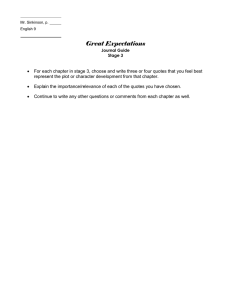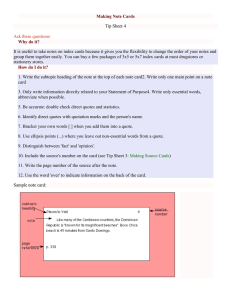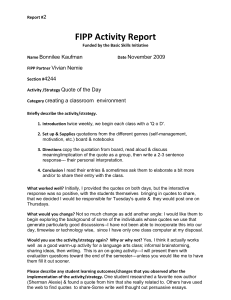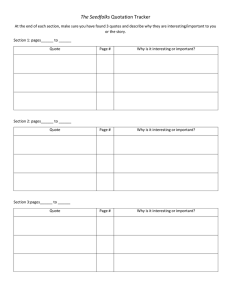QUOTING FROM SOURCES: Essential Guidelines #1 exactly
advertisement
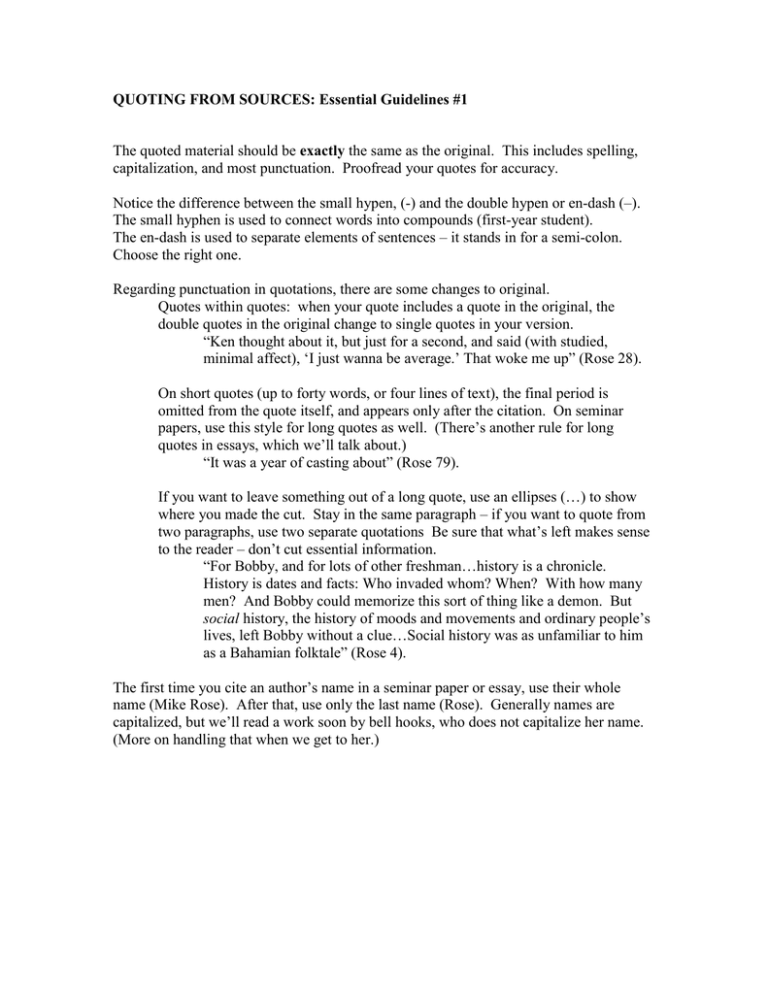
QUOTING FROM SOURCES: Essential Guidelines #1 The quoted material should be exactly the same as the original. This includes spelling, capitalization, and most punctuation. Proofread your quotes for accuracy. Notice the difference between the small hypen, (-) and the double hypen or en-dash (–). The small hyphen is used to connect words into compounds (first-year student). The en-dash is used to separate elements of sentences – it stands in for a semi-colon. Choose the right one. Regarding punctuation in quotations, there are some changes to original. Quotes within quotes: when your quote includes a quote in the original, the double quotes in the original change to single quotes in your version. “Ken thought about it, but just for a second, and said (with studied, minimal affect), ‘I just wanna be average.’ That woke me up” (Rose 28). On short quotes (up to forty words, or four lines of text), the final period is omitted from the quote itself, and appears only after the citation. On seminar papers, use this style for long quotes as well. (There’s another rule for long quotes in essays, which we’ll talk about.) “It was a year of casting about” (Rose 79). If you want to leave something out of a long quote, use an ellipses (…) to show where you made the cut. Stay in the same paragraph – if you want to quote from two paragraphs, use two separate quotations Be sure that what’s left makes sense to the reader – don’t cut essential information. “For Bobby, and for lots of other freshman…history is a chronicle. History is dates and facts: Who invaded whom? When? With how many men? And Bobby could memorize this sort of thing like a demon. But social history, the history of moods and movements and ordinary people’s lives, left Bobby without a clue…Social history was as unfamiliar to him as a Bahamian folktale” (Rose 4). The first time you cite an author’s name in a seminar paper or essay, use their whole name (Mike Rose). After that, use only the last name (Rose). Generally names are capitalized, but we’ll read a work soon by bell hooks, who does not capitalize her name. (More on handling that when we get to her.)
